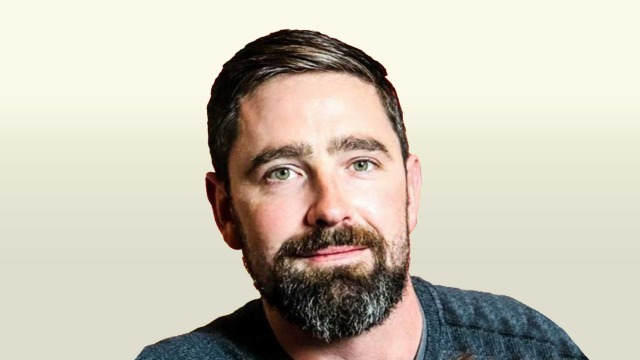
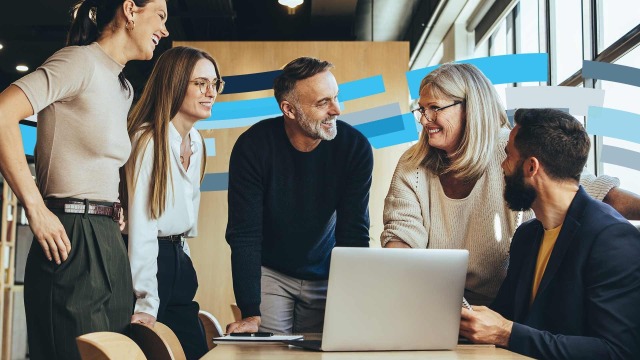
Select your location
Bosch Rexroth around the world
Asia & Pacific
Europe


Over the last few years, the role of the office has evolved. With many companies choosing to offer flexible or hybrid working, the office has become even more important as a central hub for collaboration, communication and creativity. At Bosch Rexroth, we’ve started the transformation of our workspaces and finished the first offices around the world. So we wanted to share our experiences so far of creating inspiring workplaces.
We believe that people perform at their best when they have a work environment that inspires them and meets their needs. That’s why we involve our teams in the decision-making process regarding which work environment will best enable them to perform their tasks for the company. This has a positive impact on people’s performance and the way in which they collaborate as a team.
The new approach to the design of our workplaces isn’t just a matter of redecoration. It’s a structured approach that considers different types of tasks. Nowadays, the nature of work is complex, and one solution isn’t right for every job. That’s why a flexible environment, which caters for different tasks and different teams, is what’s required.
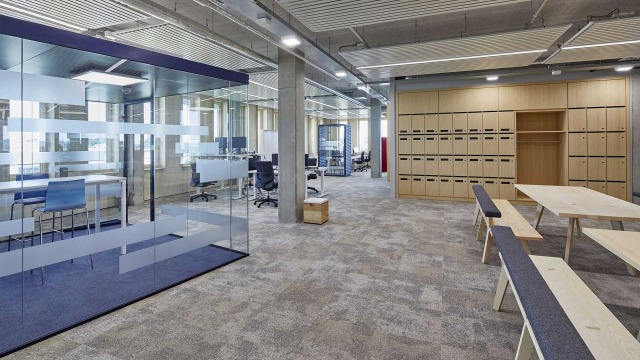
A Bosch Rexroth workspace in Ulm, Germany
So we’ve started adapting offices with large open working spaces for cross-departmental collaboration, quiet areas for focus and areas designed for specific types of tasks. Digital equipment, such as large touch screens and audio conferencing solutions have been installed to promote interactive working styles and to enable people to engage in hybrid meetings spontaneously. Because employees don’t have to go out of their way to get together for a meeting, the focus is on creative collaboration.
Michael Sauter
Manufacturing Coordination and Excellence at Bosch Rexroth
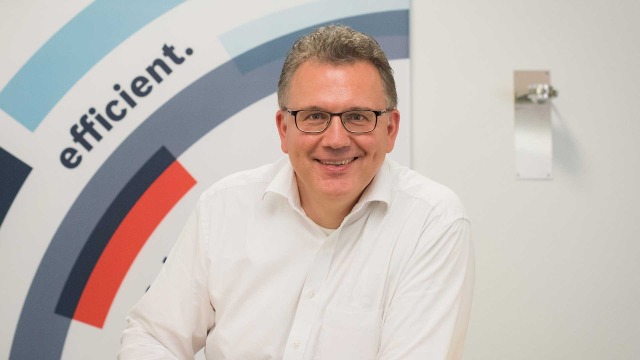
If you’d like to know how you can turn your office into a more inspirational workplace, read on.
Different spaces open up different opportunities. So, for example, there are areas where people can meet and collaborate – with tools to support the visualization of ideas and concepts, such as mobile whiteboards, digital touch screens, and cameras and sound systems. But there are also spaces where they can work individually and concentrate, as well as defined spaces for special purposes, such as laboratories. We’ve also considered project areas, agile corners, call booths, social areas and large group spaces for presentations, conferences or webcasts with live audiences.
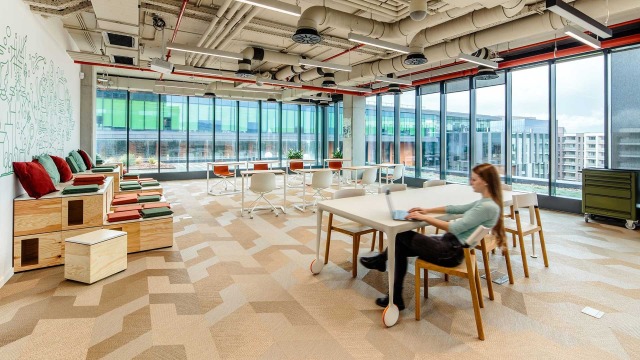
A Bosch workspace in Cluj, Romania
Sustainability is one of our strategic focus topics, which is why we pay special attention to it when it comes to our new setups. With them, we strive for a sustainable working environment that works now and into the future. When building new offices, sustainable materials are used and more efficient heating, cooling and energy systems are put into place right from the start – preserving the environmental resources we have. As the equipment is widely mobile and can be used flexibly, it caters to different needs, and can adapt to changing products, tasks and teams – supporting the fast pace in which our work changes.
Any new setup should enable people that need to work together to do so easily – and this may be different to a traditional arrangement where people are seated together because they have the same role. Using newly set up workplaces for the first time can be challenging for associates. Sometimes a huge mindset change is required too.
Our inspirational workspaces don’t just represent a future working environment, they also reflect the type of working culture we want for our business. The focus of this new working culture is on collaboration and togetherness, not just within a team, but also between different departments and hierarchies. Managing this cultural change is as important as managing the physical aspects of the project. Explaining the vision behind the changes and the new working culture, and helping people adjust to new ways of working are crucial if the redesigned workplace is to be a success. We included employees who would be using the space in the decision-making and design process, which made a big difference. Afterall, they’re the ones who are going to be working day-to-day in that office.
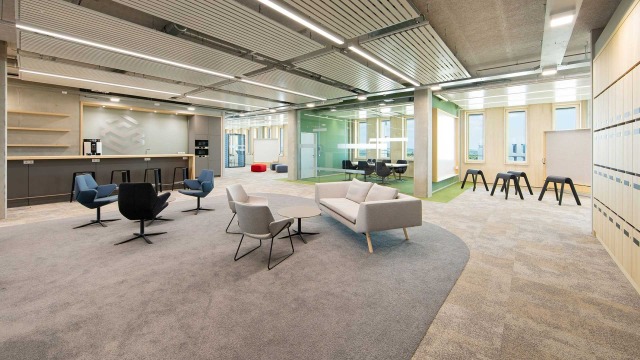
A Bosch Rexroth workspace in Ulm, Germany
There are many different ways in which these redesign projects might be initiated, but one important common factor is that employees and leaders see the transformation of the office as an opportunity to improve their collaboration, their work, and therefore the business.
Firstly, establish a working group. Ascertain what each person’s role and responsibilities are. IT and facility management are particularly important members of the group, as are users of the space.
Then, identify the needs of the people who are going to be working in the office. What type of work and tasks are they involved in? What do they need in order to accomplish their work effectively?
Gather feedback and include the employees in the process and the decision-making. This could be done in a workshop, in which you could also put together a timeline that factors in all the different parts of the process. Design different floors and areas so they’re not all the same. For example, printer and coffee corners should only be in one area, so that users from different teams will meet there. Involve guests from successfully implemented projects to explain ’what’s behind it’ and to ‘light the spark’.
Importantly, after the changes have been implemented, gather feedback and find out how the new space is working. How are the noise levels? Is the technology working effectively? Are there enough meeting areas? Are there any spaces that aren’t being used and, if so, why? Has performance, productivity and collaboration improved? Where there are issues, make adjustments.
We asked some of our associates from different offices to tell us what they think of their new workplace.
We redesigned an office into a large, open working space. Initially, the transition wasn’t easy. We had to learn how to work well together in that environment: keeping noise levels down and setting some ground rules – like roommates in an apartment.
Now, it’s easier to connect with my own team and other departments. I enjoy coming into the office with my colleagues. Our workplace fosters a positive culture of collaboration, productivity, engagement, and out-of-the-box thinking that generates new ideas.
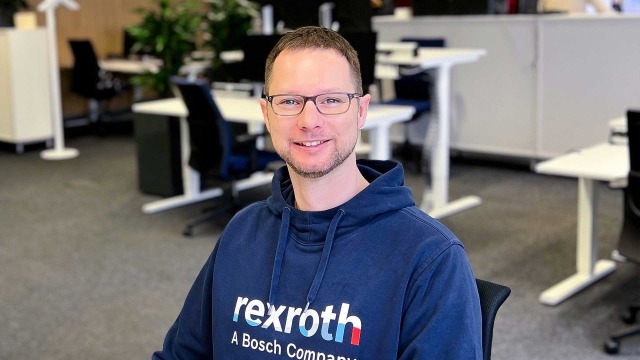
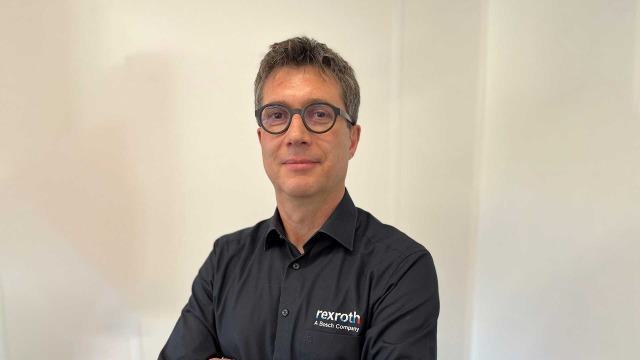
During the pandemic we proved that working from home is effective. But it’s also brought the role of the office into focus. It’s not the place to just “work” anymore, it’s a place to meet colleagues and collaborate.
Working together face-to-face is still the best way to drive innovation, and at Bosch Rexroth we’re making our offices effective places to foster this. Our teams are involved in creating environments that work for them. But it’s not a quick fix, it will evolve and develop over time.
In my role, it’s important to stay connected across different departments, to help keep the production process going. We restructured our working space to facilitate our needs, and enable us to be open, transparent, agile, and dynamic. We did this in a structured way, analyzing the different points of connection between departments, for example. We implemented new interactive collaboration methods in one area of our offices. There’s a ‘living’ team calendar on a chalk board, which is used to inform everyone about upcoming events.
We want a collaborative culture, so we’ve established regular feedback sessions with team members, and we’re learning from other departments.
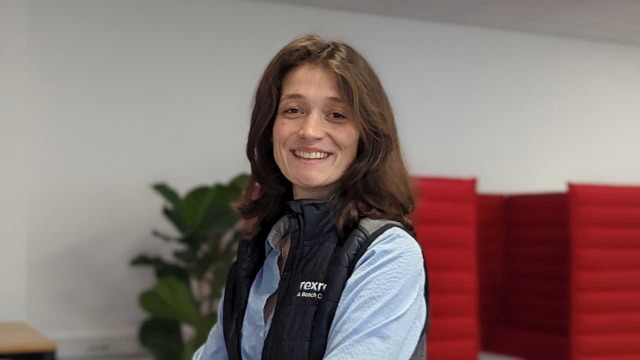
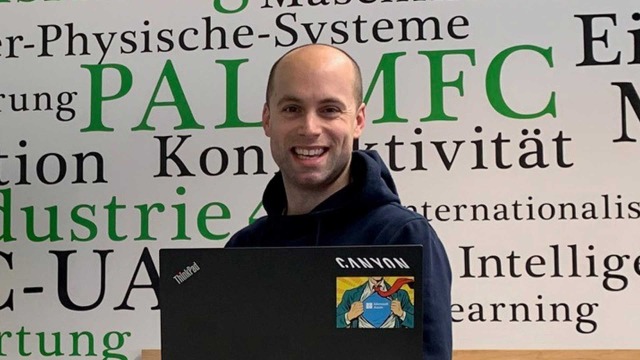
Our new office design has changed my whole team’s way of working. The open office space created a warmer working atmosphere, but it took a while to get used to.
Now we choose the spaces that best suit our tasks. My favorite is the ‘Tech-Space’, where we can meet and use the touchscreen or whiteboard to help us visualize ideas. The ‘Open Room’ – for cross-functional discussions – is important for the team on a daily basis. The ‘Telephone Booth’ is perfect for confidential meetings. We’re very happy with the transformation.
I joined Bosch Rexroth fairly recently and my experience of working at our new Customer Experience Center in Canada has been very positive. The open concept provides a welcoming environment to new and existing employees and fosters a team-based atmosphere. Customers and employees can gather in a relaxed setting that encourages open communication and good relationships. It often leads to impromptu conversations with people that I might not have had the pleasure of meeting in a regular office.
